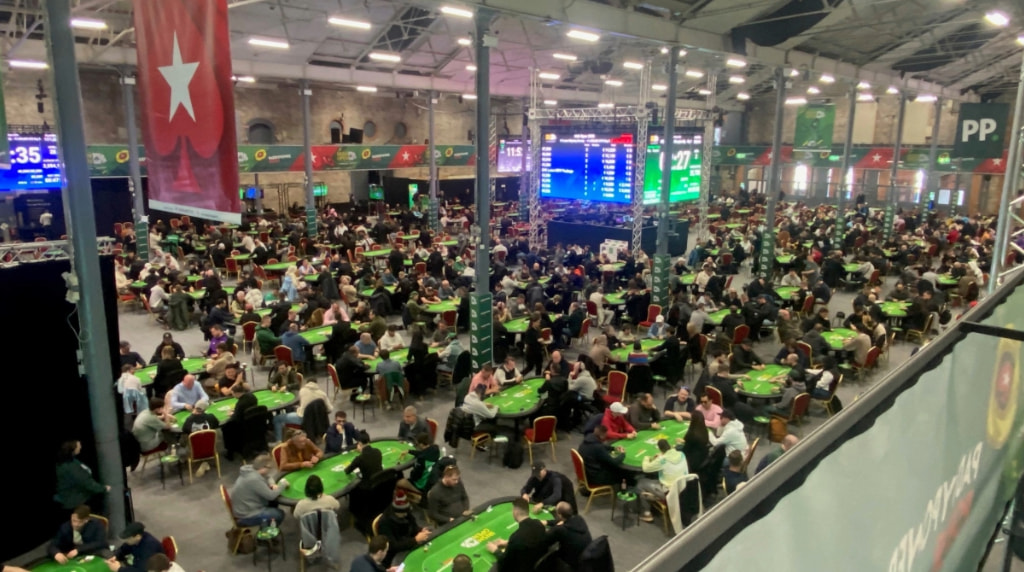KSA issues massive fine to licensed operator
The Dutch Gambling Authority, Kansspelautoriteit (KSA), has slapped a staggering €350,000 fine on local gambling operator Bingoal. The gambling provider was penalized after it breached the gambling code of the Netherlands by not consulting the nation’s self-exclusion from gambling register (CRUKS) before offering its gambling services in the country.

KSA has issued Bingoal a massive €350,000 fine for violating the country’s gambling code. ©Pixabay/Pexels
Harmful gambling is a serious social issue that requires a multi-faceted approach to address. In the ongoing battle against harmful gambling, regulators worldwide have come up with measures to alleviate the issue. Various new solutions have been tested and implemented, and multiple countries have often deployed similar solutions in their respective nations’ regulated gambling markets. Like other gambling authorities, the KSA also has a set of rules and requirements that every licensed operator in the Netherlands should comply with to retain their hard-earned gambling license. One of the many aspects licensed operators are supposed to oblige with is the consultation with the Central Register of Exclusions from Games of Chance (CRUKS) before offering their gambling services to Dutch nationals.
Bingoal is a licensed operator in the strictly regulated gambling market of the Netherlands. The Belgian-based operator complied with all but one of the gambling codes of the country set forth by the KSA in June 2022. According to the KSA, the operator granted access to players in the Netherlands without accessing CRUKS and cross-referencing the players with that platform to verify whether or not anyone was on the self-excluded list or not. Using CRUKS, any gambler with a gambling problem or with harmful gambling traits can exclude themselves from participating in all kinds of gambling activities in the country. The player themselves can choose whether they want to take a short or a long-term break from gambling depending on the severity of their situation.
Hence, the constant connection with CRUKS is an obligation for all licensed operators in the country. Every operator requires a valid Public Key Infrastructure (PKI) certificate to connect and access the database maintained by CRUKS. PKI is basically an encryption and data signing system that can be used to create and issue digital certificates which authenticate the identities of users and services. Bingoal lost its access to CRUKS in June 2022 after its PKI certificate expired. However, till the renewal and issuance of a new PKI certificate, the Belgian operator continued to let players participate on its platform without looking at the self-exclusion database for three days. After a thorough investigation, the KSA slapped a hefty fine of €350,000 for the breach. This operator has raised an appeal against this decision.
Harmful gambling affects not only the individual gambler but also the people who are around them. This includes families, friends, colleagues, and communities. The issue is characterized by excessive gambling behavior that leads to negative consequences, such as financial difficulties, mental health problems, and relationship issues. Authorities and communities worldwide are funding research programs to understand these traits better and develop a measure to detect them early so that the losses are limited. In addition, many awareness-raising campaigns are conducted around the same issue where the hosts effectively reach vulnerable audiences and make them aware of the consequences. Besides consulting the CRUKS, licensed operators in the Netherlands must also intervene if any harmful gambling traits are detected.
The CRUKS is a tool that can be accessed via a valid PKI certificate by licensed operators in the Netherlands. However, another problem looms in the country’s regulated gambling market: the operators offering their gambling services to Dutch audiences without valid certification. This is another battle the KSA is part of and has done well in the last year.
KSA imposed fines worth more than €25 million
The Dutch Gambling Authority recently confirmed that it had detected seven gambling operators offering their services to Dutch players without a valid license which the KSA issues. The sum of all these fines that were issued came to a figure of a little over €25 million. The regulator has closely monitored the online gambling market since the Remote Gambling Act came into play in March 2021. Since the regulated online gambling market launched in September 2021, the KSA has slapped fines on multiple operators that opt to offer gambling services without the nation’s gambling license.
Recently, Shark77 became the latest unlicensed operator to be fined by the KSA. According to Shark77, it should be allowed to operate in the Netherlands because it is licensed by the Malta Gaming Authority (MGA). However, the KSA does not tolerate any breach of its regulations. Hence, a €900,000 fine was issued to Shark77. Legal proceedings are in process, and that is why the identities of the other six operators have not been disclosed yet. Once the ruling on the disclosure of these operators is made, the KSA will be able to publicize their respective identities and more information about the fines.
The fines have been raised significantly because of the fine policy, which the KSA revised. The operator’s revenue will also be in contention when finalizing the amount of a fine. The calculated amount can now be imposed as a secondary fine on unlicensed operators in the country. Multiple factors will contribute to the increased fine amount. In every fine decision, the illegal profit of unauthorized providers is taken into account, including the costs that permit holders must incur for obtaining and maintaining a permit, which can amount to approximately €800,000 per year and even double that amount to €1.6 million for the first year of operation.
The Contributing Aspects for hefty fines
The KSA also highlighted the aggravating aspects that increase fines for unlicensed operators in the Netherlands.
According to KSI, these are the five aggravating aspects:
- +31 (Dutch country code) at the entry screen for phone numbers
- Games that cannot be paused and have autoplay or turbo play buttons
- Ludicrous terms and conditions
- Missing age verification
- Paying via decentralized and unlawful methods
These are the aspects that prompted KSA to increase fines on illegal gambling operators in the country. The Dutch Gambling Authority also stated that such enormous fines have been imposed on unlicensed operators for the first time in the nation’s history.



